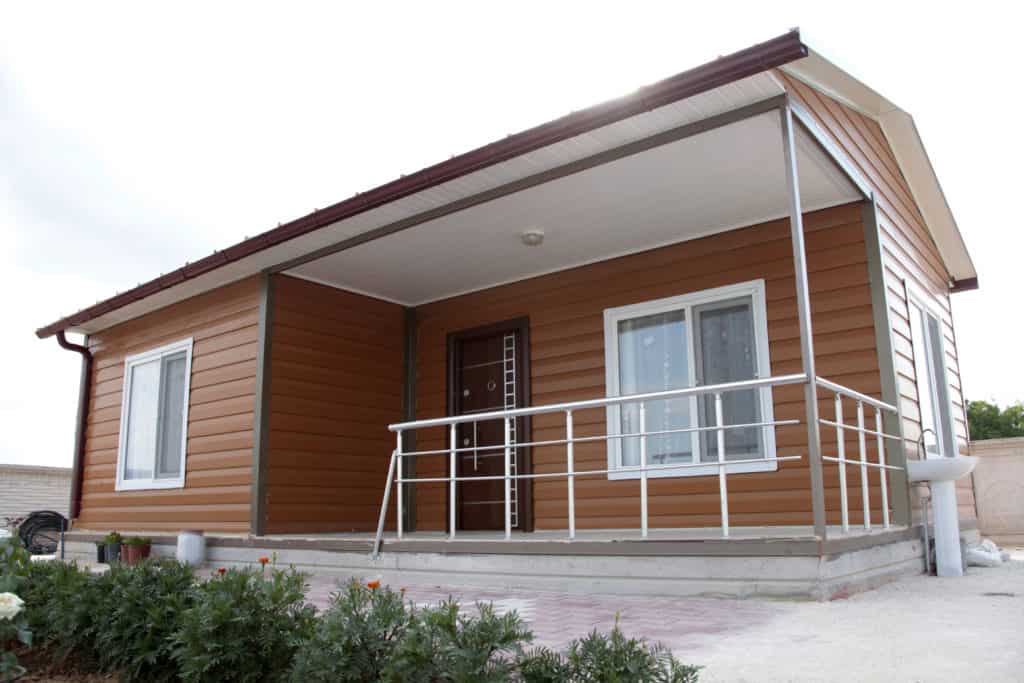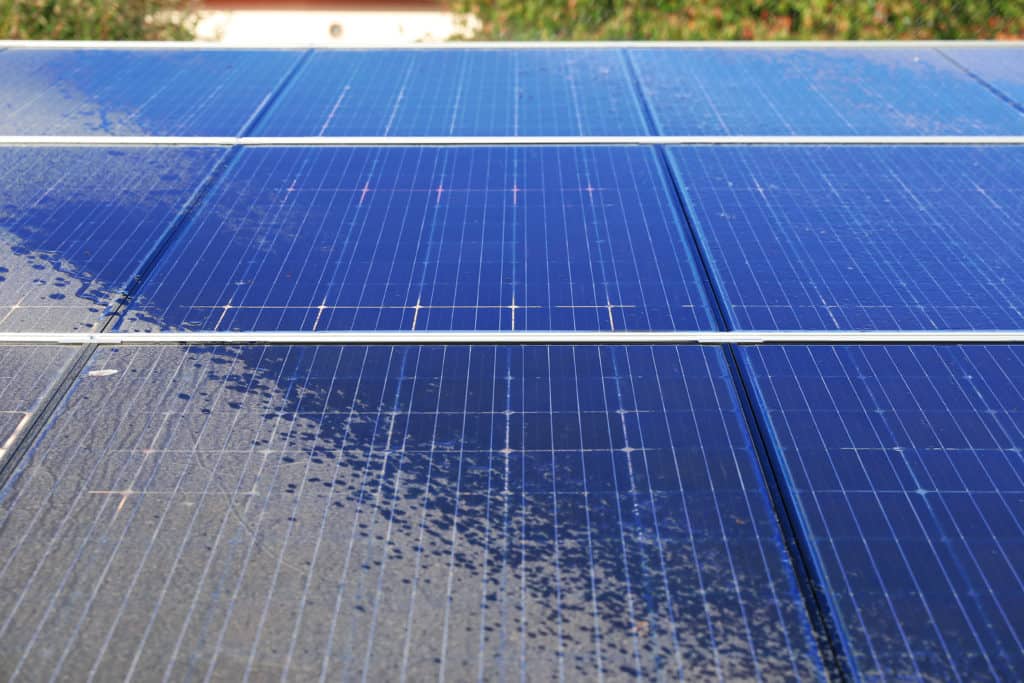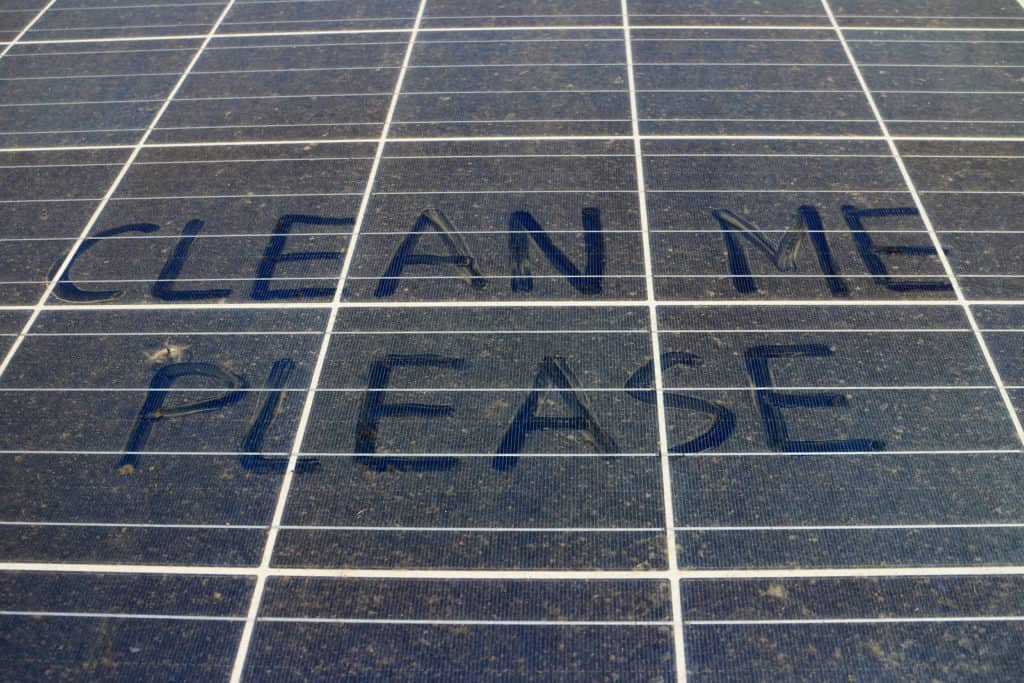
Solar panels are a great way to conserve energy and money. However, is it possible to install them anywhere, including a mobile home?
Installing solar panels on the roof of a mobile home is usually not a good idea. Mobile homes are not normally built with strong enough roof joists to uphold the weight of a solar system, plus without a concrete foundation, there is not enough structural integrity.
While you may not be able to go fully solar in a mobile home, there are still options for mobile homeowners to utilize solar power. Here’s what you need to know before getting started!
Options for Mobile Homeowners
Since mobile homes are smaller, foundationless, and weaker than site built homes, installing an entire solar panel system is neither practical nor safe. Additionally, many who live in mobile homes may not have adequate financing to purchase and install a solar system. However, while mobile homeowners may not be able to have a completely functioning solar power system, there are still ways to incorporate solar energy into your home.
In most cases, a ground mounted solar panel system is the next best choice for mobile homeowners. A ground mounted photovoltaic (or PV) system is flexible and can be placed in the most advantageous position for your home. Then again, depending on the make and model of home you have, your mobile home just might be able to support a rooftop solar panel system. If you choose to invest in a lighter weight system or add additional structural support to your roof, you could probably pull it off.
You could also opt for a smaller system than most other homes would have. Just be sure you are thorough in the installation process. Too much weight on the roof of your home can be quite dangerous. If your system is too heavy, its weight, combined with any debris or snow that might accumulate, could very well cave your roof in.

If rooftop solar panels are not an option for your home, you could also resort to using another structure for your panels. A garage, enclosed patio, storage shed, or something similar are all considerable options. As long as they have the structural integrity for a PV array, you should be good to go.
The only thing left to consider, then, is the energy efficiency of your home. Most manufactured homes are at somewhat of a disadvantage because they are often not as energy efficient as site built homes and can waste quite a bit of power. However, doing things as simple as sealing ducts and air leaks, improving insulation, and installing storm windows can help save you energy.
Perks of Using Solar Energy
Though there are a lot of perks to using solar energy, there are a couple downsides as well. Here are a few pros and cons to consider.
One of the biggest perks is that solar panels will often help to reduce your electric/energy bill. It could be somewhat expensive up front, but installing a solar system will often greatly decrease the amount you pay each month for electricity. Depending on where you live, you could even completely eliminate that bill. Additionally, since the sun is a readily available resource, you can become completely energy independent. This is an excellent perk because it can sometimes mean that when the power goes out, you might still have power since you are using the sun.
Using solar energy also reduces carbon footprint somewhat. While it does produce some footprint to manufacture and distribute solar panels, using solar power does not let off any harmful emissions. Solar power is clean, emits no greenhouse gasses, and holds no pollutants. Another thing to consider is the longevity of most solar systems. Most systems can last for 20 or more years and require little maintenance during that time.
In some cases, you can also receive financial support from the government. Tax benefits can often become available when you install solar panels in your home or place of business. Benefits vary by state, but taxpayers could potentially claim 30 percent of installation costs. The solar industry also creates different types of jobs, from manufacturers to solar installers, which in turn are helpful to the economy.
Downsides to using solar energy

Those are some fantastic perks! Unfortunately, there are several cons that accompany the perks. One thing that turns most people off to solar systems is the initial cost. It’s true, using a solar panel system could potentially save you money in the long run, but purchasing the system along with paying for installation can pack quite a wallop.
In certain places, you will often have to depend on the weather for optimal performance. If you live in a cloudy area where dark days are the norm, your system will not likely function at optimal performance as often as is desirable. You will probably end up with a system that functions okay in the summer months, but during the winter it will be much less effective. You should also consider the location of your home. If your house is situated in a particularly shady area, you probably won’t see as much efficiency as you might like to. If you take all of this into account before you install your system, you should be safe. Be sure to do so, however; not doing so will result in a lot of trouble and potentially wasted money. Additionally, in cases of extreme weather, dirt, and debris will accumulate on the panels which also obstructs efficiency and requires constant cleaning.
It is also inconvenient for moving and or roof repairs. While it is possible to take your solar system with you when you move, it is a terribly long and difficult process. Not only will you have to uninstall the panels and racking, you will have to patch any holes the racking may have left in the roof, as well as any other damages that might be left behind. Similarly, in the event that your roof might need a repair job done, you will have to go through the same process which could prove to be somewhat costly.